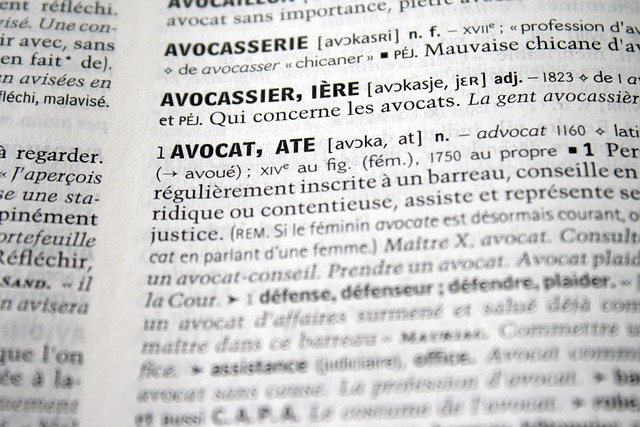Mail wire fraud is a growing concern in high-value real estate, utilizing deceptive electronic communication to trick victims into transferring money or sensitive information. The Real Estate Litigation Process Explained is vital for identifying and preventing such fraud by focusing on documentation and due diligence. Recognizing signs like unexpected transfer requests, errors, and pressure tactics can help individuals and businesses protect themselves from becoming victims and achieve favorable court outcomes. Skilled legal representation is crucial to navigate the complex process and uncover fraudulent schemes through detailed analysis. Protecting oneself requires vigilance: never share personal info unless verified, be cautious of unexpected emails, implement security measures, and educate yourself about the Real Estate Litigation Process Explained.
“Mail wire fraud, a insidious practice targeting the real estate sector, poses significant risks for buyers, sellers, and agents alike. This comprehensive guide, ‘Real Estate Litigation Process Explained,’ delves into the intricacies of mail wire fraud, its common types, and the legal landscape surrounding it. We’ll explore practical strategies to protect yourself from becoming a victim. By understanding these threats, you can navigate real estate transactions with enhanced awareness, ensuring a safer experience.”
- Understanding Mail Wire Frauds: A Comprehensive Overview
- Common Types of Real Estate-Related Scams
- The Legal Implications and Prosecution of Mail Wire Fraud
- Protecting Yourself: Strategies to Avoid Becoming a Victim
Understanding Mail Wire Frauds: A Comprehensive Overview

Mail wire fraud is a sophisticated and increasingly common form of criminal activity that poses significant risks to individuals and businesses alike, particularly in high-value sectors like real estate. This type of fraud involves the use of deceptive electronic communication, such as emails or text messages, to manipulate victims into transferring money or sensitive information under false pretenses. The real estate industry, with its intricate transactions and high stakes, is a prime target for these criminals.
Understanding mail wire fraud requires a grasp of the criminal’s tactics: they often impersonate legitimate organizations, use urgent language to create a sense of panic, and manipulate victims into acting quickly without proper verification. The Real Estate Litigation Process, which involves meticulous documentation and due diligence, plays a crucial role in identifying and preventing these fraudulent activities. By recognizing common signs like unexpected requests for wire transfers, spelling or grammar errors, and pressure tactics, individuals and businesses can protect themselves from becoming victims of mail wire fraud. Achieving extraordinary results in the court of law becomes even more feasible when proactive measures are taken to safeguard against such white-collar and economic crimes, ensuring winning challenging defense verdicts.
Common Types of Real Estate-Related Scams

In the realm of real estate, fraudsters often target vulnerable buyers and sellers with various schematics designed to extract financial gains illegally. Common types of real estate-related scams include fake listings that never exist, fraudulent sales agreements, and forged documents masquerading as legal paperwork. These scams can range from simple deception about property conditions to complex schemes involving false ownership claims, leading to legal disputes and, in many cases, the Real Estate Litigation Process Explained.
One particularly insidious method involves scam artists posing as legitimate agents or lawyers, luring corporate and individual clients into signing contracts under false pretenses. They may claim to have exclusive access to prime properties at highly discounted rates or promise swift and hassle-free property transactions. Once the respective business is secured, these fraudsters disappear, leaving their victims stranded in a web of legal complications and financial losses. Achieving extraordinary results in such cases often requires meticulous investigation and robust legal representation to navigate through the intricate Real Estate Litigation Process Explained, ensuring justice and recovery for those affected.
The Legal Implications and Prosecution of Mail Wire Fraud

Mail wire fraud, a deceptive scheme involving the use of mail and wires to defraud individuals or entities, carries significant legal implications. When caught, individuals found guilty of this crime can face severe consequences, including substantial fines and imprisonment. The Real Estate Litigation Process Explained plays a crucial role in such cases, as it involves meticulous tracking of financial transactions and communication patterns to build a robust case against the perpetrator.
Prosecution strategies often include gathering electronic evidence, such as emails and phone records, to demonstrate intent and the execution of fraudulent activities. General criminal defense attorneys specializing in these matters help their clients navigate this complex process, aiming to avoid indictment and mitigate potential penalties. Effective legal representation involves understanding the intricate details of mail wire fraud laws and utilizing strategic defenses tailored to each unique case.
Protecting Yourself: Strategies to Avoid Becoming a Victim

Protecting yourself from mail wire fraud is crucial, especially as such schemes become increasingly sophisticated. Start by staying vigilant with your personal information; never share sensitive details like passwords or PINs over the phone or email unless you’ve initiated contact and verify the recipient’s identity. Be cautious of unexpected emails or letters claiming to be from banks or government agencies, requesting immediate action or threatening consequences. Double-check sender addresses and look for signs of poor grammar or unusual formatting, as these could indicate a scam.
Implementing security measures like two-factor authentication (2FA) adds an extra layer of protection. Keep software and antivirus programs up to date, and use secure connections when accessing sensitive accounts. Additionally, educate yourself about the Real Estate Litigation Process Explained, as knowledge is power; understanding your rights and the respective business practices can help you navigate potential fraudulent activities. Remember that a proactive approach, combined with caution, significantly reduces the risk of becoming a victim.
Mail wire fraud, particularly in real estate transactions, remains a significant concern. By understanding common scams, their legal repercussions, and implementing preventive measures, individuals can safeguard themselves from becoming victims. The Real Estate Litigation Process plays a crucial role in addressing these fraudulent activities, ensuring justice for those affected. Staying informed and adopting robust security practices are essential steps to navigate this complex landscape securely.






